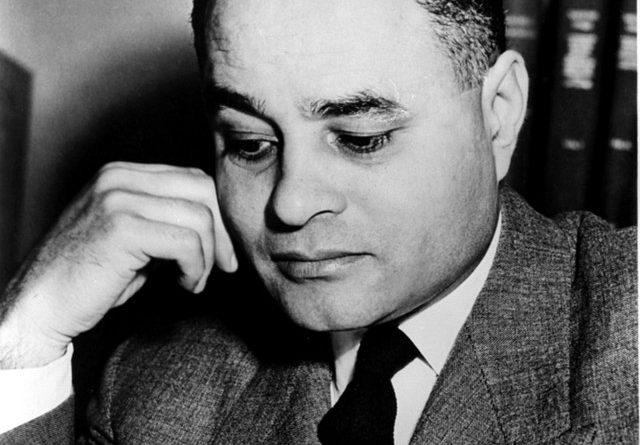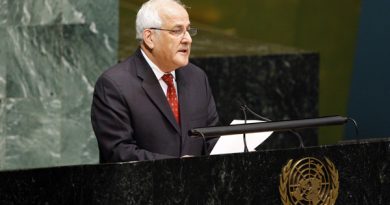Ralph Bunche (1903-1971): A Life Against All Odds, A Model of Self Determination
Rev. Dr. Forest Pritchett
Contributor
Most Americans, beyond many scholars, have very little knowledge of how much the issue and paradigm of racial subjugation has been part of the American narrative from the beginning. Every territorial decision, major policy, every “inch of progress,” and every aspect of the discussion for freedom for an enslaved labor force is influenced by an emphasis on the suppression of the Negro people. Hitler thought America made a big mistake by allowing the minorities, that built the nation, to survive after the emergence of the empire. The challenge of physical survival, in a genocidal atmosphere, is real for the Negro in America, just as it was for the indigenous nations of North America.
Ralph Bunche grew up in an America where life and the odds of succeeding were stacked tremendously against anyone of African American descent. No non-African American would voluntarily want to walk in the shoes of a Negro for a day. Many Whites thought they had a moral responsibility to always “put Negroes in their place”. The laws of the land and the attitudes of the those favoring racial domination, from the 19th century, followed African Americans into the 20th century.
What was life like for Negroes in the early twentieth century? According to Thomas N. Maloney, University of Utah, writing for the Economic History Association, “African Americans in the Twentieth Century, “The nineteenth century was a time of radical transformation in the political and legal status of African Americans. Blacks were freed from slavery and began to enjoy greater rights as citizens…Despite these dramatic developments, many economic and demographic characteristics of African Americans at the end of the nineteenth century were not that different from what they had been in the mid-1800’s. Only about one-fifth of African American household heads owned their own homes (less than half the percentage among whites). Outside of farm work, African American men and women were greatly concentrated in unskilled labor and service jobs. Most black children had not attended school in the year before the Census, and white children were much more likely to have attended.”
Early twentieth century themes for African Americans were a “continuation of nineteenth-century patterns” of discrimination and hatred, followed by the themes of migration and urbanization toward the middle portion of that century. More formalized patterns of racial violence were institutionalized by the Ku Klux Klan, or KKK, an American white supremacist hate group who targeted African Americans, Jews, immigrants, leftists, homosexuals, and Catholics with terrorism and death.
Against this historical wall blockade of racism, Bunche was determined to become an “envoy of peace.” He emerged as an early scholar of colonialism and researched the subject in the field in Togo, French Cameroon, South Africa, Uganda and Kenya. In his 1936 A World View of Race, he drew a striking parallel between colonialism in the world at large and racial discrimination in the United States. He was the founding director of the Political Science Department at Howard University in Washington. He served in the OSS during the war and had a major influence on the treatment of racial problems in the US army, as well as writing manuals for the troops on how to behave in Africa and how to deal with different perceptions of race in foreign countries.”
After World War II, Bunche was an adviser to the U.S. delegation for the 1945 “Charter Conference” of the United Nations. In his most notable achievement, Dr. Ralph Bunche became involved in the Arab-Israeli conflict in 1947 and received the Noble Peace Prize in 1950 for that and additional peace treaties in the region. He was the first African American and person of color to receive the award. Bunch was also awarded the “Medal of Freedom” from President John F. Kennedy in 1963.
Today his name is seldom mentioned, but his legacy lives on wherever we see the emissaries of peace do their work. His words provide an enduring legacy for the international relations community and his people:
“To make his way, the Negro must have firm resolve, persistence, tenacity. He must gear himself to hard work all the way. He can never let up. He can never have too much preparation and training. He must be a strong competitor. He must adhere staunchly to the basic principle that anything less than full equality is not enough. If he compromises on that principle his soul is dead.”
“There should be no room for bigotry in the house of democracy.”
“In a world where democracy is gravely besieged, the United States must consider seriously the implication of its own failure to extend the democratic process in full to some thirteen million of its citizens whose present status tends to make a mockery of the Constitution.” ― Ralph J. Bunche


